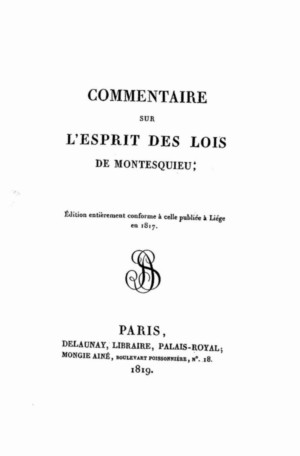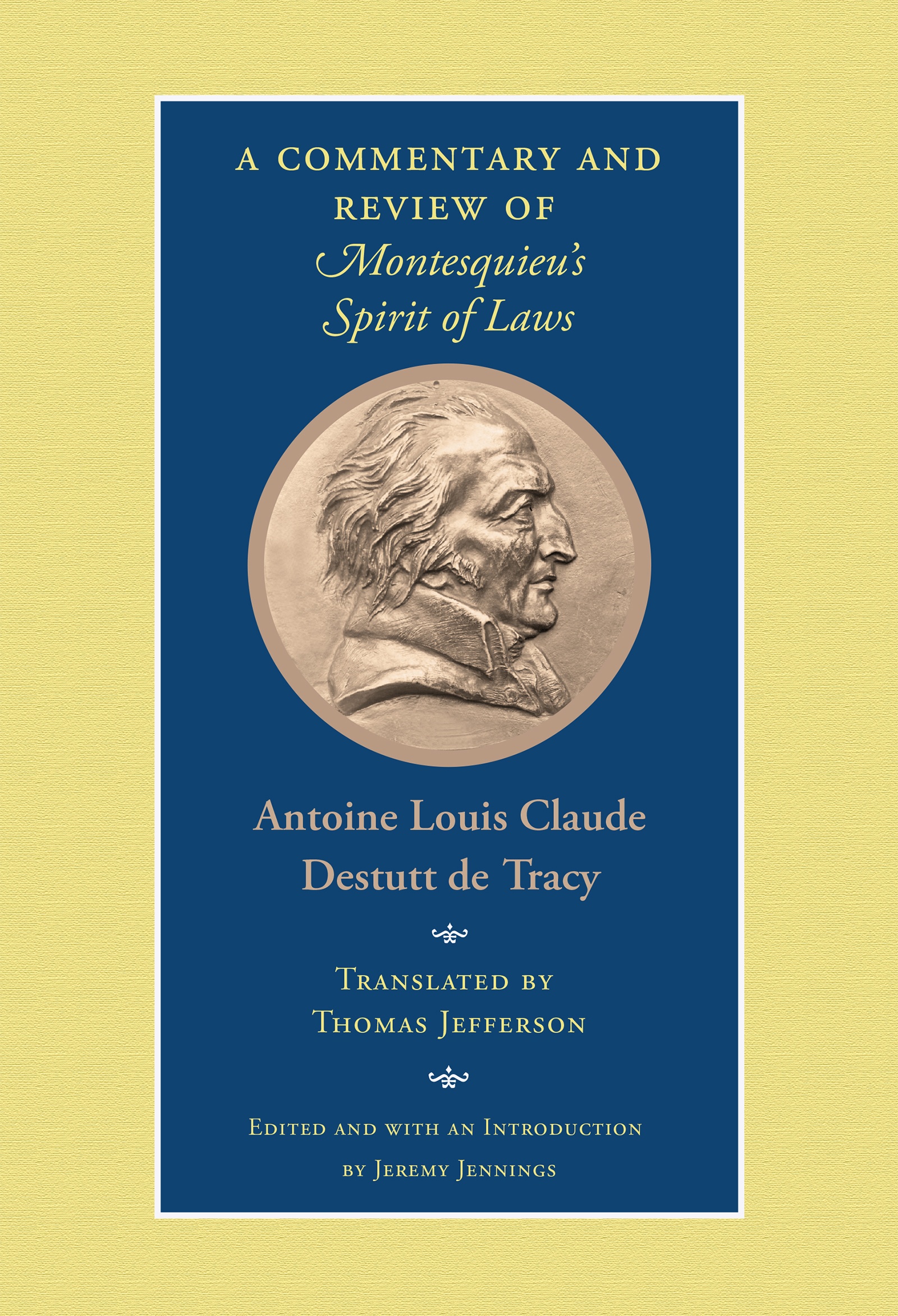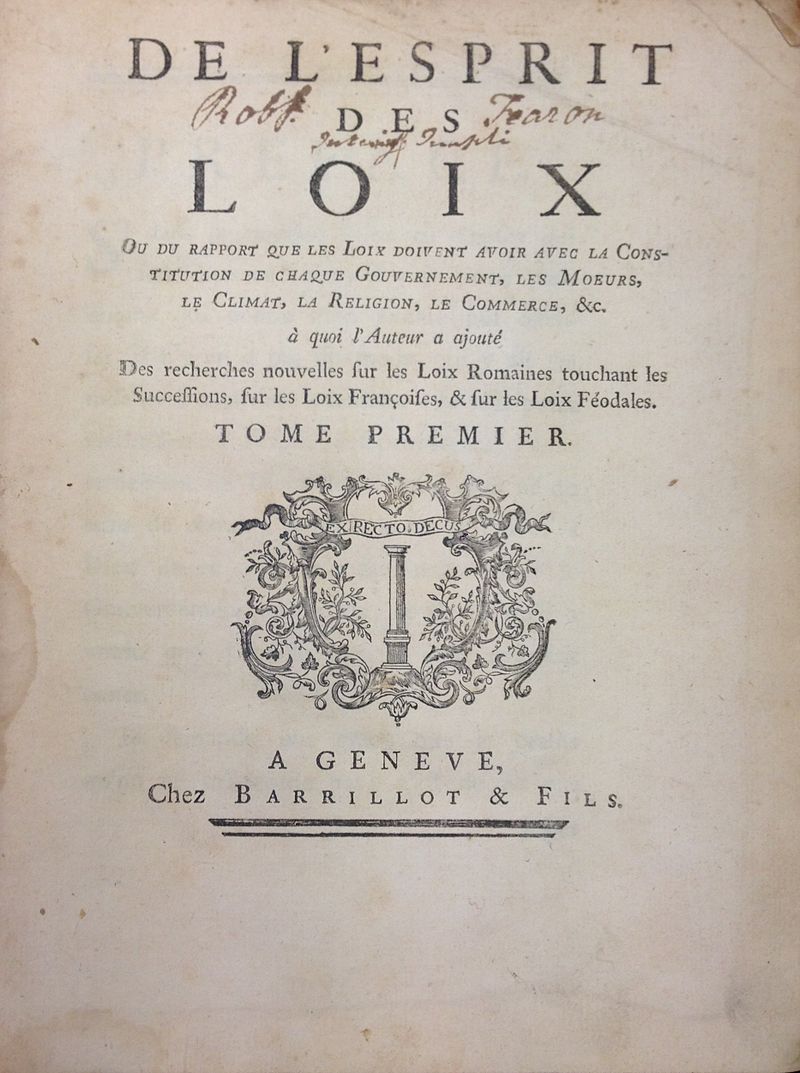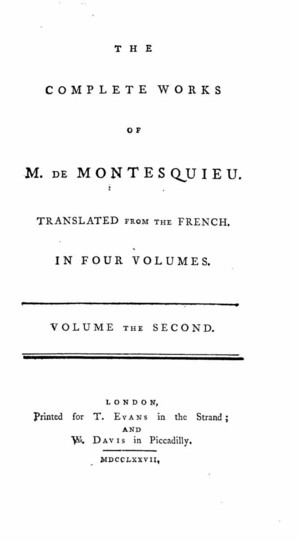Merits of Montesquieu's Spirit of Laws (1748)
About this Collection
The appearance of Montesquieus Spirit of Laws in 1748 provoked a debate which has raged ever since. Montesquieu anaysed different forms of government, the impact of climate on social organization, advocated the separation of powers as a brake on the power of the monarch, and espoused unorthodox religious views (thus getting his book placed on the Index in 1751). Gathered here are some of the replies to the arguments first put forward in 1748.
Titles & Essays

Commentaire sur l’Esprit des Lois de Montesquieu
Antoine Louis Claude, Comte Destutt de Tracy (author)

A Commentary and Review of Montesquieu’s ’Spirit of Laws’
Antoine Louis Claude, Comte Destutt de Tracy (author)

Complete Works, vol. 1 The Spirit of Laws
Charles Louis de Secondat, Baron de Montesquieu (author)

Complete Works, vol. 2 The Spirit of Laws
Charles Louis de Secondat, Baron de Montesquieu (author)

Loading...